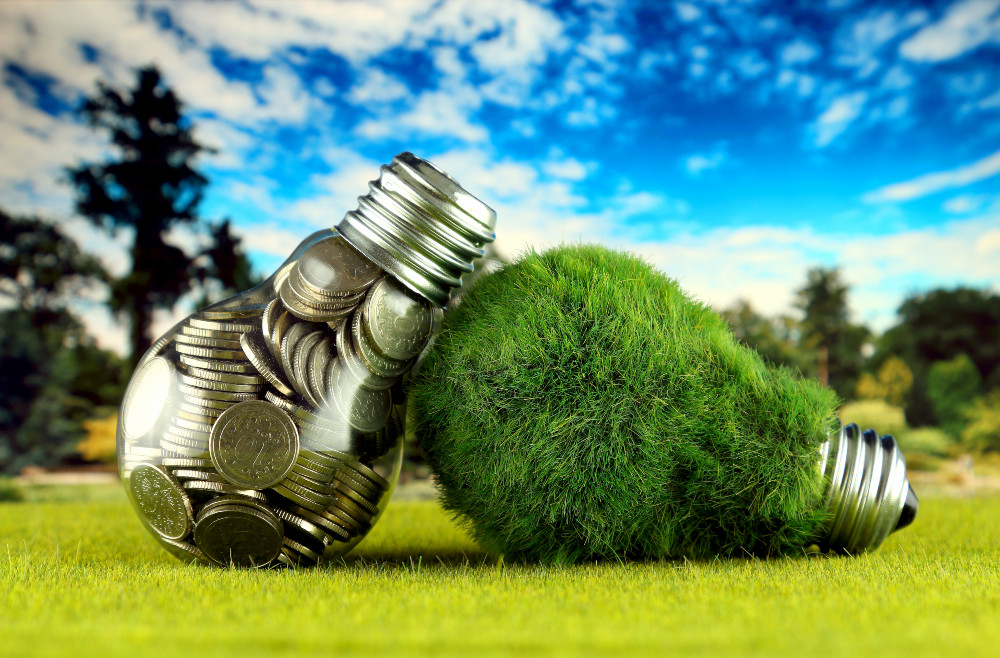What is the Climate Change Levy?
The Climate Change Levy (CCL) is an environmental tax charged on the energy that businesses use. First introduced in 2001, it is designed to both encourage businesses to be more energy efficient in how they operate in addition to reducing overall emissions in the UK.
The CCL is charged on taxable commodities for lighting, heating and power purposes such as electricity, natural gas, petroleum and coal. It is not charged on road fuel and other oils as these are already subject to excise duty.
The CCL is paid at either the main rate or the Carbon Price Support (CPS) rate. You’ll pay CPS rates if you own electricity generating stations or you’re an operator of combined heat and power stations.
All eligible businesses will be charged CCL at the main rate on electricity, gas and solid fuel (such as coal, coke, lignite or petroleum coke) use. You will be able see the CCL main rates listed on your gas or electricity bill.
Who pays the Climate Change Levy?
The CCL applies to businesses in the industrial, public services, commercial and agricultural sectors.
You may be exempt from paying the CCL if:
- Your business uses minimal amounts of energy. The threshold is less than 33kWh electricity and/or 145kWh gas a day.
- You are a domestic energy user. This not only includes homes but also schools, caravans and self-catered accommodation.
Previously, business using renewable electricity were exempt from the CCL, however this was removed in August 2015.
Main Rates
| Taxable commodity | Rate from 1 April 2021 |
| Electricity (£ per kilowatt hour (KWh)) | 0.00775 |
| Gas (£ per KWh) | 0.00465 |
| LPG (£ per kilogram (kg)) | 0.02175 |
| Any other taxable commodity (£ per kg) | 0.03640 |
How is the CCL charged?
Business energy suppliers are responsible for charging the correct CCL when they bill their customers. Once they have collected the charge, it is then passed on to HM Revenue & Customs.
Reduced CCL rates
To pay reduced main rate CCL charges, energy intensive business can voluntarily enter into a Climate Change Agreement (CCA) with the Environment Agency. This agreement aims to reduce energy use and CO2 emissions.
As part of this deal, you’ll have to take steps to improve your business’ energy efficiency and lower your average energy consumption. You’ll also have to measure and report your energy use and CO2 emissions against agreed targets over four two-year terms. These targets will be assessed at the end of each term and must be met in order to continue receiving discounts on the CCL.
If you meet these conditions, you will receive a reduction of 90% in the CCL rate on electricity bills, and a 65% reduction on all other fuels. You can check and see if your business is eligible for the CCA here.
PERCENTAGE DISCOUNT FOR HOLDERS OF A CLIMATE CHANGE AGREEMENT
| Taxable commodity | Rate from April 2021 |
| Electricity | 92% |
| Gas | 83% |
| LPG | 77% |
| Any other taxable commodity | 83% |
How can I make my business more energy efficient?
- Fit LED lighting
Use natural light where you can and use energy-efficient LED lighting for the rest. LEDs use 75% less electricity than standard lighting and produce little carbon dioxide - Use light sensors
You can reduce energy wastage by around 30% by installing light sensors. Light sensors will automatically switch lights off after a period of inactivity. - Switch off office equipment
Make sure that your electronic equipment such as laptops, photocopiers and printers are switched off overnight. Also make sure that you unplug mobile phone and laptop chargers when not in use. - Activate sleep mode where possible
Enable energy-saving features to ensure equipment automatically powers down when not in use. If you can, set sleep mode to come on after 15 minutes or less of inactivity. Also avoid using screen savers and only print when necessary. - Get a smart meter
This will provide details on where your business uses most of its energy and where you need to reduce it. It will also ensure your energy bills are accurate and not based on estimates. - Turn down the thermostat
Reducing the temperature by just one degree can save up to 10% on your heating bills. Make sure windows and door are shut when the heating is on. - Book an energy audit
An energy audit will establish your current energy usage and help you figure out a clear roadmap to reducing energy consumption in your business. Eneco Consulting can arrange comprehensive site energy audits to identify reasons for high energy consumption and include tailored recommendations. Take a look at our energy audit page for more information.
Non-energy costs
The CCL is classified as a non-energy cost. Non-energy costs can also include things like wholesale distribution and transmission costs. Non-energy costs are updated quarterly/bi-annually by the Government and Ofgem and account for around 60% of your electricity bill. Accounting for these kinds of costs can get tricky. This is something that our Energy Consultants can help you navigate.
Get in touch for more information.




